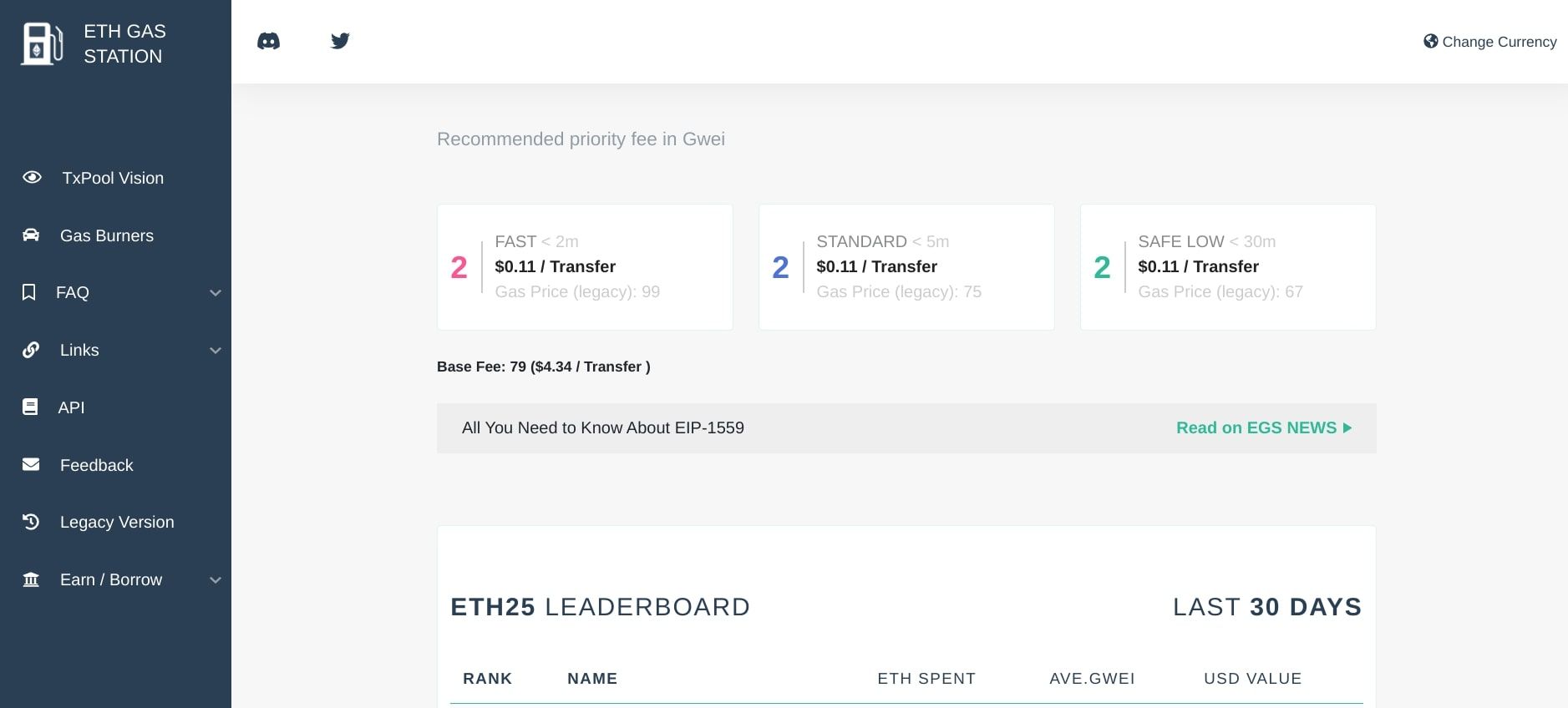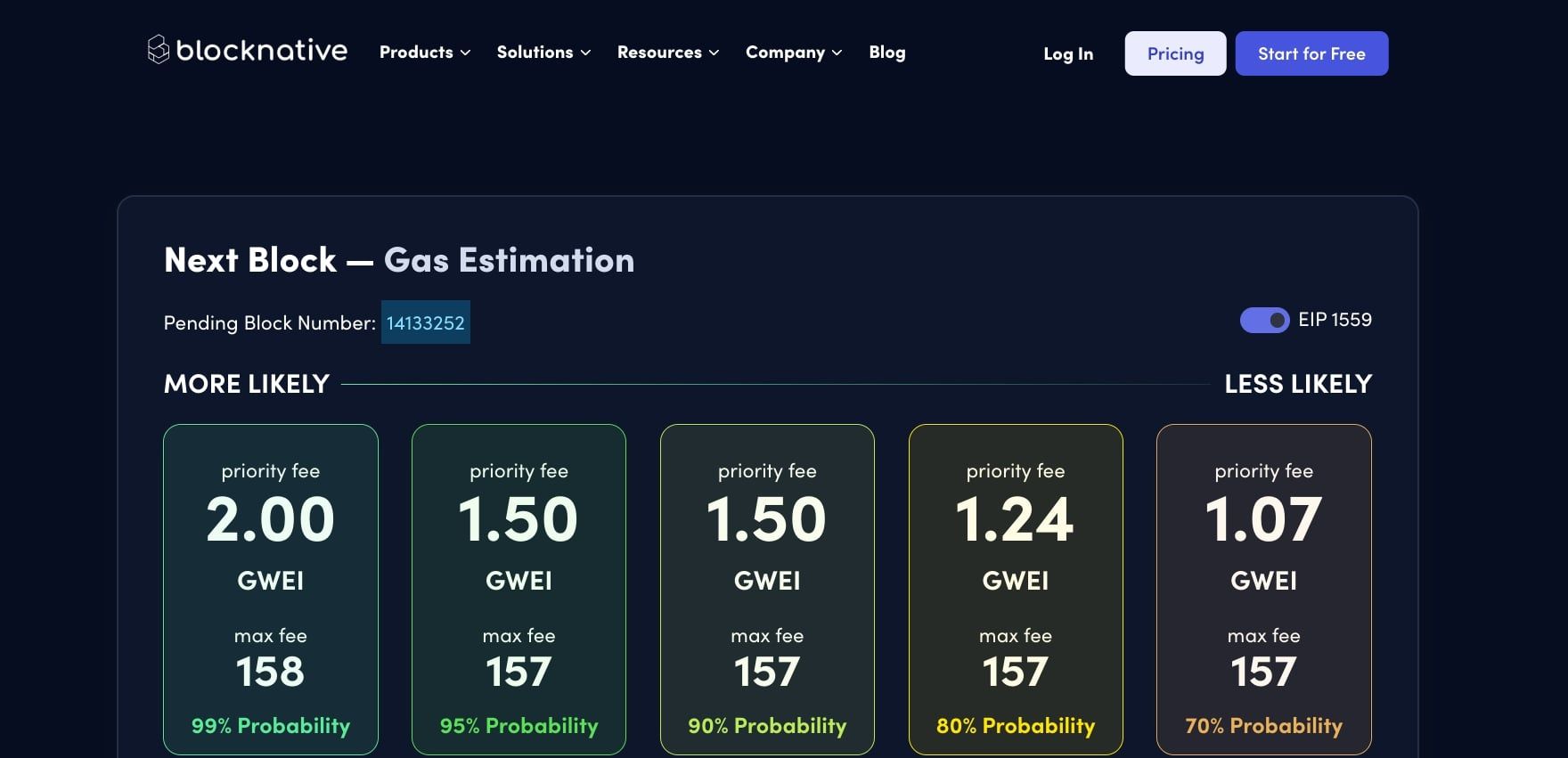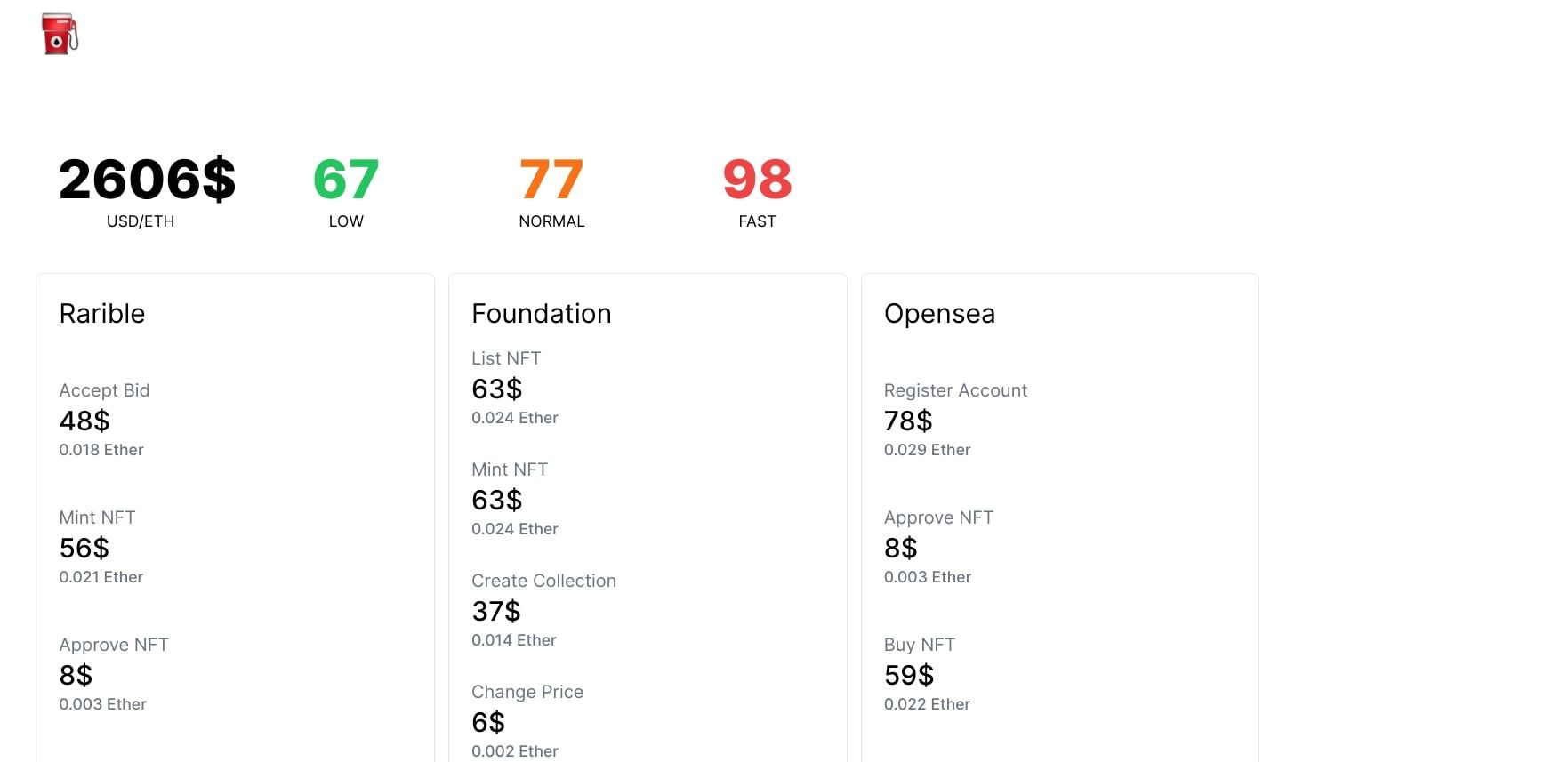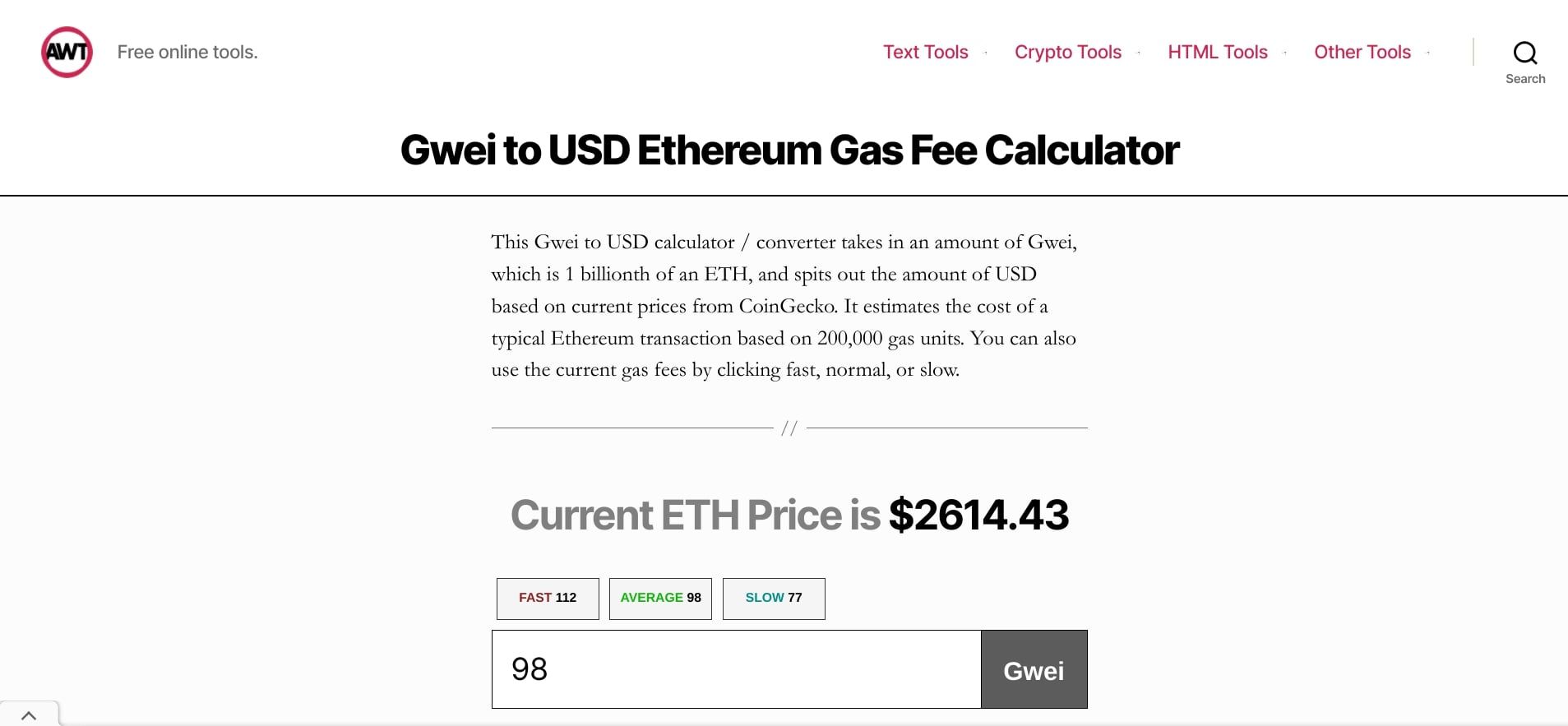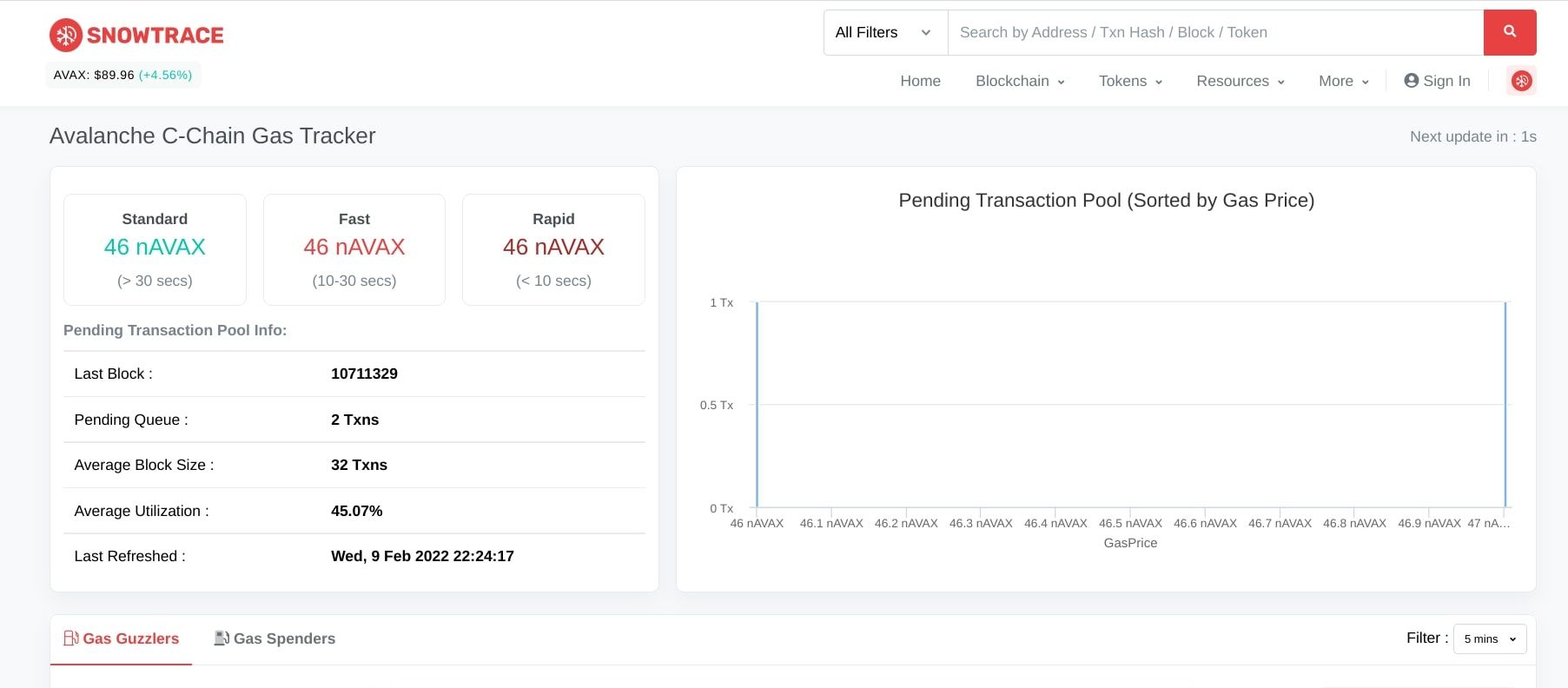Ethereum isn't just the world's second most popular cryptocurrency. The Ethereum blockchain is also a hugely popular platform on which people can develop their own cryptocurrencies, build DeFi projects, and even create new decentralized exchanges.
Thousands of people use these services every day, but this comes at a cost—known as a gas fee. These gas fees are charged to users to compensate for the massive amount of computing power required to run the Ethereum blockchain and can be costly.
However, you can make sure you're paying the least amount in fees with some of these Ethereum gas fee calculators.
Understanding Ethereum's Gas Fees and Its Units
Before we get into the best gas fee calculators out there, let's first discuss the units used to calculate gas fees. The two main units you'll usually see for Ethereum gas fees are wei and gwei (or Giga wei). Wei is the smallest denomination of Ether and represents a minuscule fraction of one token. One ETH contains a quadrillion wei, and a billion gwei.
Ethereum gas prices are measured in gwei, and this unit is used in a basic equation one can use to calculate gas fees:
Gas units (limit) * Gas price per unit (in gwei) = Gas fee
In this sum, the gas limit relates to the maximum amount of gas you are willing to use in a transaction, and the gas price per unit is how much it costs in gwei.
However, like the crypto market itself, gas prices are constantly changing. Sometimes they're as low as a few gwei, and sometimes they can range in the thousands. This is why gas calculators are so helpful. They provide you with up-to-date gas prices and let you calculate just how much you'll be paying in gas fees at any given moment.
But these calculators aren't super simple to navigate. They don't give you a single gas price, but rather three different ones. These are usually called the fast, average, and slow rates, but they sometimes have other names.
The fast gas rate represents the fastest transactions taking place on the Ethereum blockchain. Since these take less time, they use up more gas, and so the fast rate will usually be the highest of the three (unless they're all the same). So, the average and slow rates are often lower because they represent slower transactions.
Now that you know how to calculate gas fees and how they differ, let's look at the best sites to visit if you want to calculate your gas fees.
1. ETH Gas Station
ETH Gas Station is an excellent resource for calculating your gas fees. On this site, you can find live updates on the fast, average, and slow gas rates across the Ethereum blockchain.
You can see the priority gas fee (which is the fee paid directly to miners on the blockchain), as well as the gas price in gwei. Below these, you can also view the current base fee, which dictates how much gas is required for a transaction to take place at all on the Ethereum blockchain.
ETH Gas Station also has a list of the top gas-guzzlers—called the ETH25 leaderboard. These are the projects using up the most gas across the blockchain. The ETH25 leaderboard also warns users of ongoing scams on the network so that you know which projects to be cautious of or avoid altogether.
2. Blocknative
Unlike the other sites listed here, Blocknative does not use fast, average, and slow gas rates. Instead, it lists five prices that range from more likely to less likely. As each new block is introduced to the blockchain, a new set of gas prices shows up on the page.
Blocknative also shows the priority fee for miners and provides you with a graph of recent gas prices to see where things have been going in terms of gas prices. This includes both the current base and priority fees across the Ethereum blockchain.
3. Gwei Gas Calculator
The Gwei Gas Calculator offers a simple interface to quickly determine the current gas prices. This site shows the current market price of Ethereum and the fast, average, and slow gas rates (though they are labeled as low, normal, and fast in this case).
Gwei Gas Calculator also shows the gas fees for performing various functions on three of the most popular NFT marketplaces: Opensea, Rarible, and Foundation. Here, you can see what it'll cost you in gas fees to list, buy, mint, and approve NFTs. Additionally, you can see what it'll cost in gas fees to wrap Ethereum and place or settle bids.
4. AWT Gas Calculator
AWT, or Automated Web Tools, offers a valuable gas fee calculator that you can use quickly and easily. AWT uses CoinGecko, a crypto coin stats provider, to determine the price of one gwei at any given moment. Then, using this, it can provide you with a USD conversion of any given gas price in gwei.
AWT also provides you with the fast, average, and slow gas price rates and the current market price of Ethereum. It's a great little tool to use for all your Ethereum-based transactions.
5. SnowTrace
SnowTrace is another fantastic option for tracking Ethereum gas fees. Using this site, you can find the slow, average, and fast gas prices, but they're labeled standard, fast, and rapid instead. You can also take a look at the site's easy-to-read graph that shows you the live gas prices. The site automatically refreshes its stats every three seconds to keep you as up-to-date as possible.
SnowTrace offers several other resources to learn about recent block sizes, transaction speeds, and more. Additionally, you can use SnowTrace to check out the average Ethereum block size and the top 25 gas guzzlers and gas spenders on the blockchain at any given moment. It's a great site overall for checking Ethereum stats.
Pay Less Ethereum Gas Fees With These Sites
Calculating your gas fee no longer needs to be a frustrating and time-consuming process, thanks to the sites above. By finding the most up-to-date gas prices across a range of different transactional speeds, you can accurately work out just how much you'll be paying in ETH for whatever functions you want to perform on the Ethereum blockchain.

.jpg)

